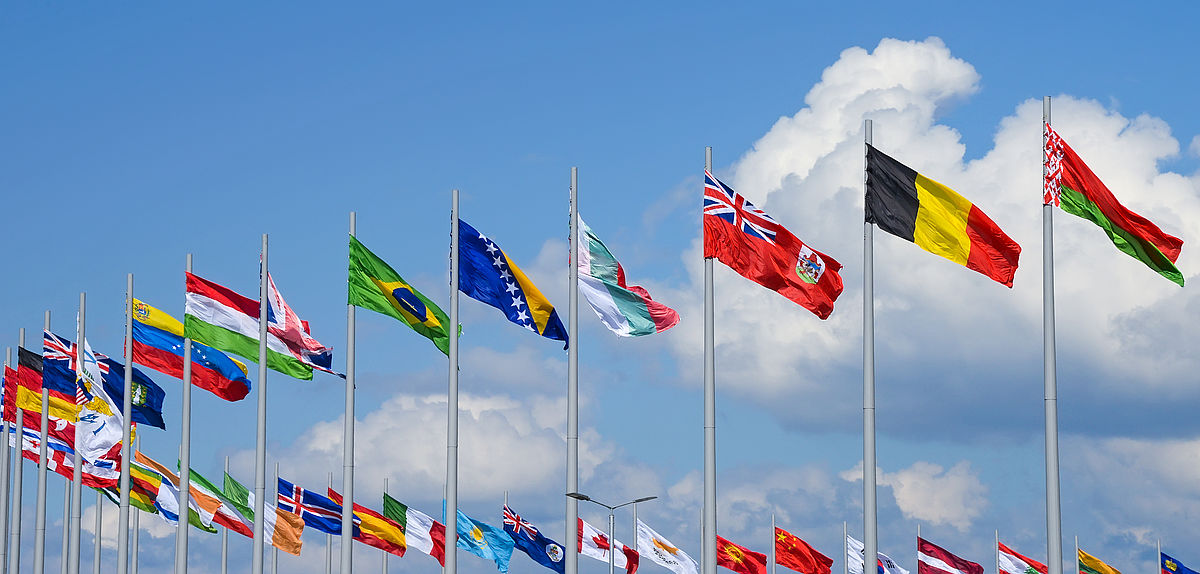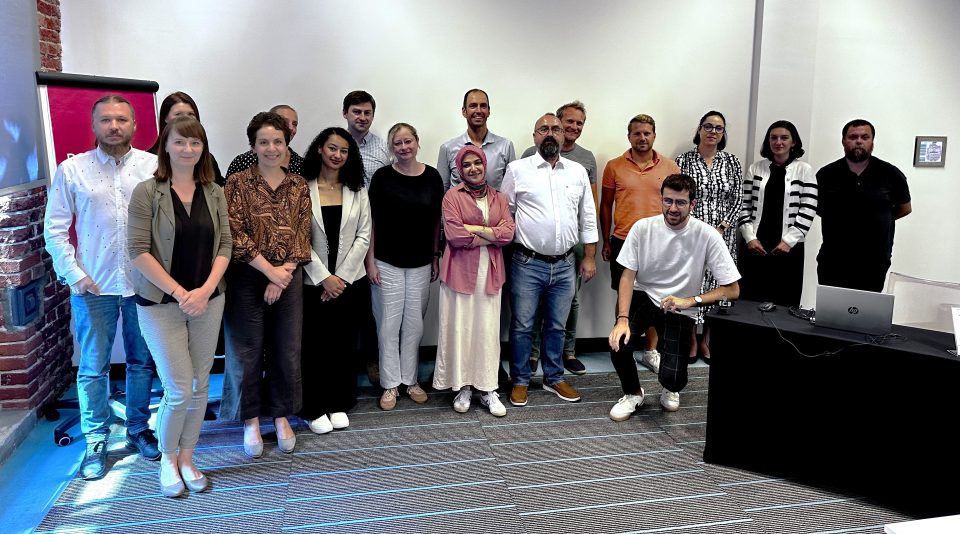On September 15th, 2020, our Knowledge Partner, the Foundation for European Progressive Studies (FEPS), in coordination with the Istituto Affari Internazionali, published the report “A renewed Multilateralism for the 21st Century”. The report reflects many of the ideas that the President of FEPS Professor Maria João Rodrigues presented during the Advisory Board Meeting of Re-Imagine Europa on September 8th, was published on the eve of the 75th United Nations General Assembly. Many insights that are shared in the report are essential to understand the current state of multilateralism and global cooperation.
Humankind is currently confronted with new global challenges which are rightly perceived as vital to the future of the entire species. Issues like human health, ecosystems preservation, governance of the digital spaces and infrastructures have emerged and intertwined, in recent years, with the classic instances of global cooperation such as peace, human rights, access to culture and knowledge. International governance mechanisms will hence need to be revised to respond to these new challenges and be more effective in addressing those that already existed.
The COVID-19 pandemic and the subsequent crisis are acting as a catalyst, accelerating the rise of these new challenges. It is indeed a make or break moment for international cooperation, and the next months will probably be a turning point shaping the rising new global order. The emergence of nationalist trends in several countries highlights the ongoing disruption of international cooperation; it is therefore high time to develop a new, inclusive and fair multilateralism for the 21st century.
Healthcare and sustainable development
The current pandemic has highlighted the need to improve international emergency prevention and response system. The WHO currently plays a marginal role and cannot deploy adequate tools to ensure national compliance with international obligations. Part of the public health funds should be allocated to increase national assessed contributions from the WHO member states.
The COVID crisis should be used to re-design the Social Contract, guaranteeing essential services to the most vulnerable and disadvantaged citizens and improving their living conditions. In particular, universal access should be granted to COVID vaccine, that must be considered a vital global good. Both short- and long-term recovery plans should use the Sustainable Development Goals as the main framework for policy guidance: any recovery plan must be based on more sustainable development models.
Human Rights
Gender equality and the full implementation of women’s rights are particularly relevant issues in the face of the crisis since most researches show that women are disproportionately paying its burden. Therefore, it is imperative to improve public services, such as public childcare services and social protection. It is also urgent engaging in awareness campaigns for greater recognition and redistribution of unpaid work and strengthening services for women and girls who experience domestic violence.
Another critical human rights issue concerns migration: developing a robust institutional and normative framework for global migration governance has proven challenging due to sovereignty concerns and diverging state interests. Health repercussions of the pandemic may induce further restrictive approaches to immigration and cross-border mobility. At the same time, they will also deepen inequality and poverty, thus increasing humanitarian and social protection needs of migrant and non-migrant populations (which in turn may lead to further migration and displacement). It is hence critical to find new ways to manage migration flows, so they are useful to both countries of departure and arrival, also to avoid the deployment of restrictions that usually fuel the dangerous paths of illegal immigration.
Energy, climate and environment
The change in the methods of producing the energy that is necessary to maintain the welfare standards achieved in recent decades is perhaps the most critical point of international cooperation in the twenty-first century. Environmental protection and energy policy are increasingly interdependent. A fundamental problem lies in the mismatch between declared and actual support to internationally agreed climate goals: several countries that formally support the Paris Agreement have taken uncertain and contradictory measures.
Thanks to the commitment to achieve climate neutrality by 2050, the launch of the European Green Deal, and strong indications that green recovery will be a core principle of the newly launched Recovery Fund, the European Union should be well-positioned to play a leading role in global climate diplomacy. However, there is a substantial risk that even some EU governments respond to the Covid-19 pandemic by making policy and investment decisions that exacerbate climate change. In order to conduct credible global climate diplomacy, the EU needs to take bold steps to fight climate change at home.
Global economic governance
New forms of cooperation are needed to manage trade tensions and the disruption of global supply chains. The multilateral development banks should be re-capitalised in order to reinforce the credit lines that are necessary to support health programmes, viable companies, jobs and vulnerable households. International trade negotiations should aim at upgrading environmental and labour standards in the countries involved. Again, as a major trading actor, the EU has a vital role to play to promote the upgrading of such measures.
Unconditional and comprehensive debt payment stand-still should be extended in the short term to release resources for emergency expenses or economic recovery in the indebted countries. Holistic proposals to link investment and debt relief to the Standard Development Goals also deserve deep consideration. Another primary objective of global cooperation should be establishing consolidated taxation of multinational corporations, a regular country-by-country reporting and a minimum corporate income tax rate, including digital services.
Global Security
Emphasising the profound social, economic and political consequences of the COVID-19 pandemic, including those relating to international peace and security, UN Secretary-General António Guterres has issued an appeal for a global ceasefire and more rapid and effective diplomatic action and aid delivery. Given the fact that the pandemic and the resulting crisis sharpen the reasons for the unleashing of future conflicts, new mechanisms, including more robust standards and procedures, to embed local actors’ perspectives into prevention, mediation and intervention strategies should be devised.
International efforts towards the elimination of Weapons of Mass Destruction and the regulation of Small Arms and Light Weapons have achieved substantial results over the last four decades. Nonetheless, the nuclear threat is growing and is at the highest level since the second world war. In recent years, arms control, disarmament and nonproliferation have witnessed significant setbacks due to rearmament and modernisation plans by major powers. Nonproliferation and disarmament objectives generally lack deadlines which are necessary to evaluate progress and build trust. Specific timelines should hence be connected to precise actions and goals, and additional emphasis should be given to regional agreements, which in some cases have been surprisingly successful.
Reforming the United Nations
On the occasion of the seventy-fifth anniversary of their establishment, the United Nations (UN) is facing a challenging but necessary path of reform. New partnerships beyond the current state-centric global architecture are needed, and it would be worth promoting flexible, topic-focused coalitions of the willing. This new type of global collaboration should involve engaging stakeholders, including private and civil society actors, in the process of pursuing shared innovative goals.
Regional players perform crucial tasks in implementing the UN agenda and serve as a bridge between global and local actors, facilitating the quest for more legitimate decision-making at the international level. Making the UN more representative by improving democratic participation and enhancing the regional dimension of the UN governing bodies should thus be part of the mentioned reform process.




